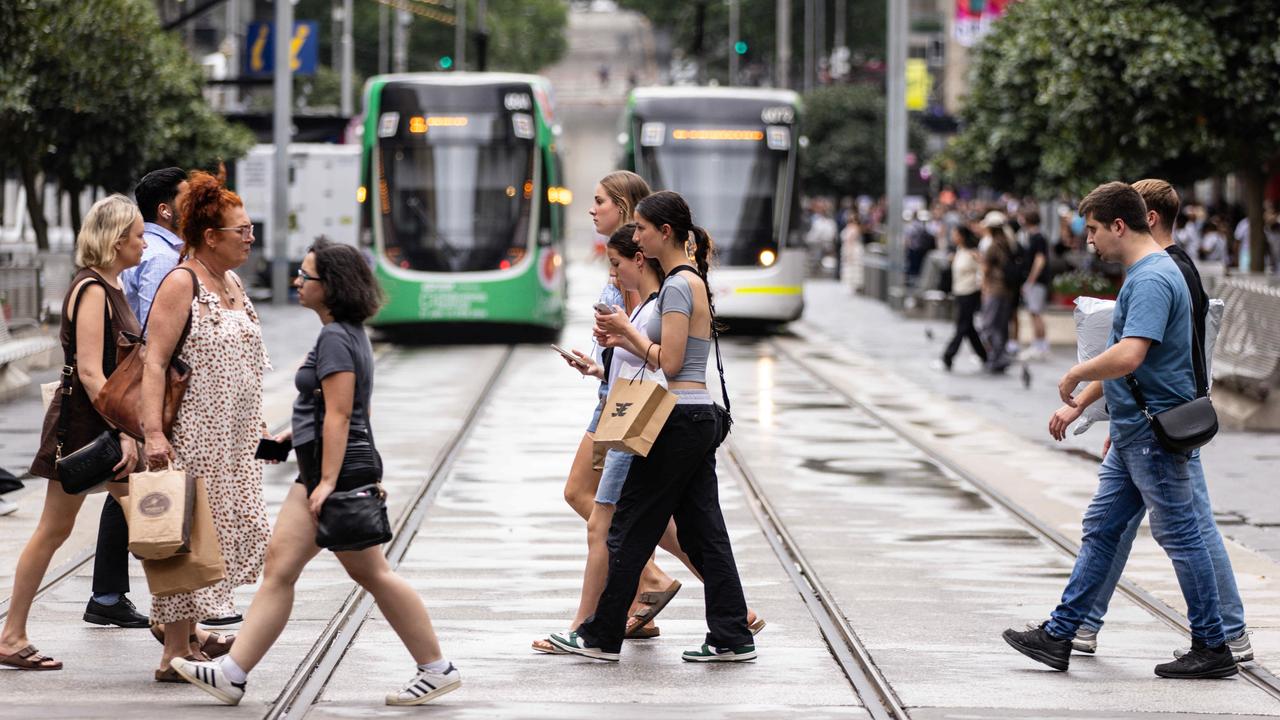Coronavirus: Aussies save $12.7 million per day avoiding commute to work
It’s an unexpected silver lining of the COVID-19 pandemic — Aussies are saving roughly $12 million a day by avoiding public transport costs.

Australians are saving $12.7 million a day by ditching the daily commute to work, according to new research.
Aussies spend a combined $34.4 million travelling to and from work a day, but with many people working from home a huge portion of that is going unspent, a survey by Australian company Finder found.
That means individually, Aussies are saving up to as much as $7 a day — or about $150 a month.
But this unexpected silver lining isn’t set to last, with Scott Morrison launching his three-step plan to bring the economy back to normal by July.
RELATED: Follow our live coronavirus updates here
RELATED: World reacts to Australia’s bold three-step plan
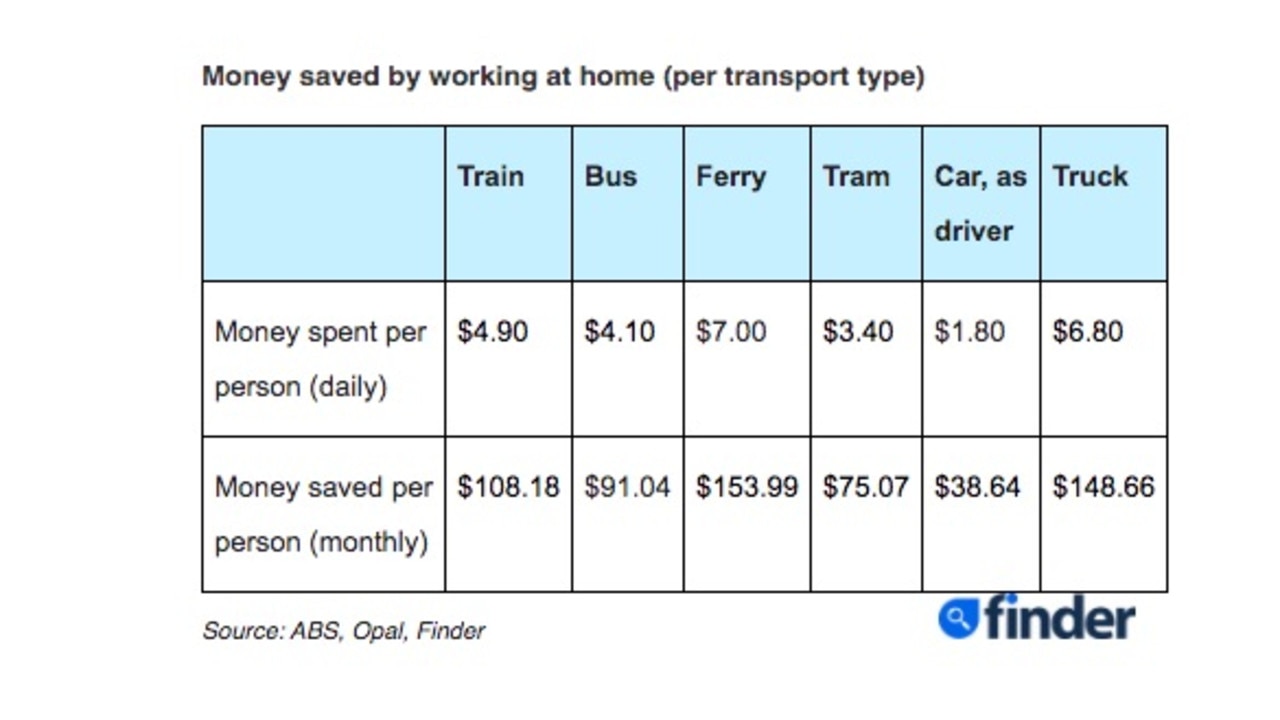
The Finder survey found that 4.8 million employees are now working from home because of the pandemic.
When it comes to commuting, Opal and ABS data shows that Aussies typically spend the most on driving to work, forking out more than $10.5 million per day one way.
This is followed by train fares ($3.7 million), bus fares ($1.4 million) and driving a personal truck ($313,500).
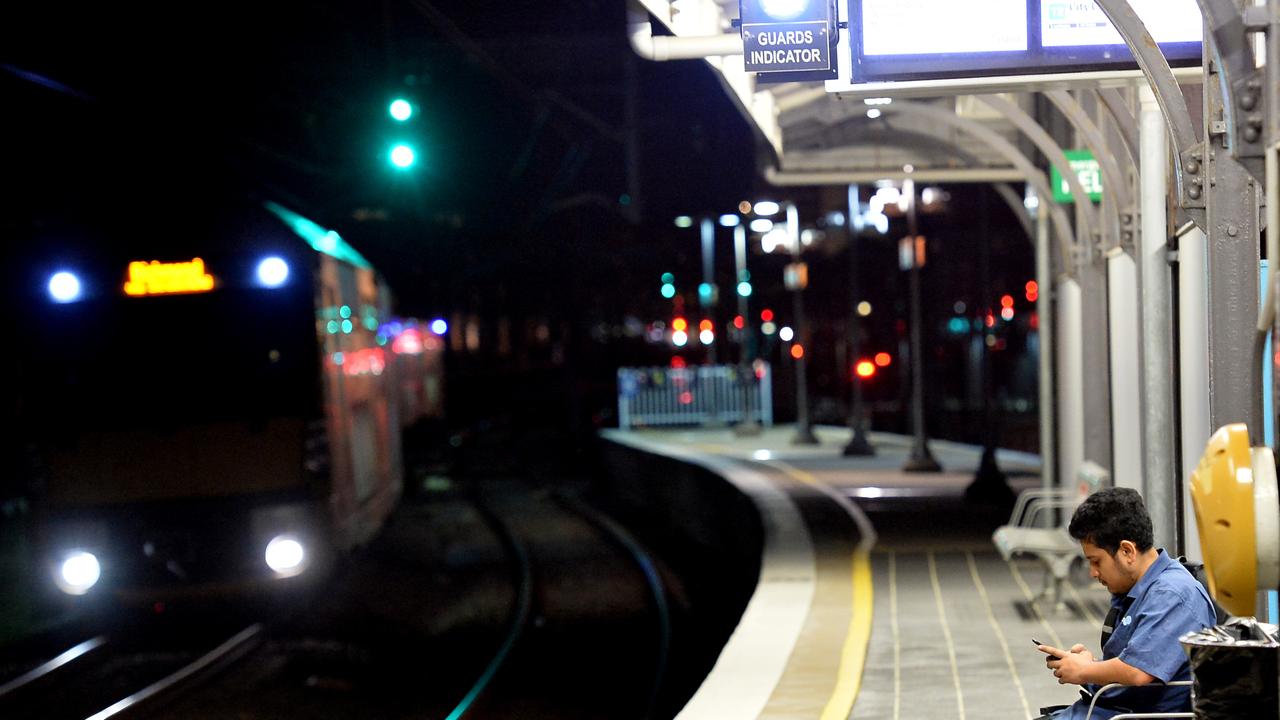
On an individual level, Australians who use the train are saving almost $5 a day simply by not travelling to the office.
Bus users are also going to save a fair bit as lockdown continues — around $4.10 everyday.
Ferry-users are set to save the most, with a whopping $7 a day on average staying in their bank accounts.
That’s roughly $150 a month.
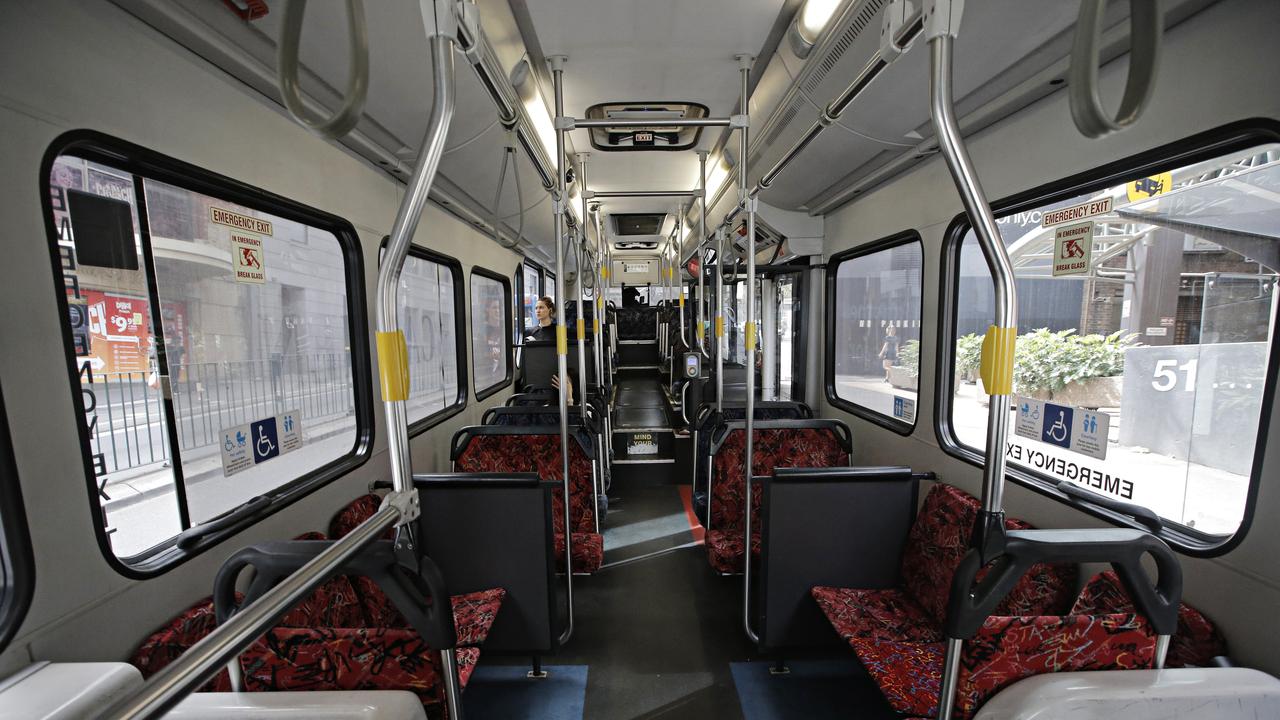
Graham Cooke, insights manager at Finder, said that with the end of lockdown now in sight, Aussies should save what they can while working remotely.
“A simple savings hack is to set aside what you’d usually spend on transport during this time and put it in your rainy day fund instead,” Mr Cooke said.
He believes that commuting may soon be a thing of the past.
“Thousands of companies are now functioning online, and the majority of workers have proven they can work efficiently at home,” he said.
“With restrictions set to lift by July, it will be interesting to see if workplaces continue to offer increased flexibility around remote working.
“Not only will this help Aussies to save on transport costs, it may also help to free up traffic on the roads and lower pollution levels as the country transitions back to normal.”
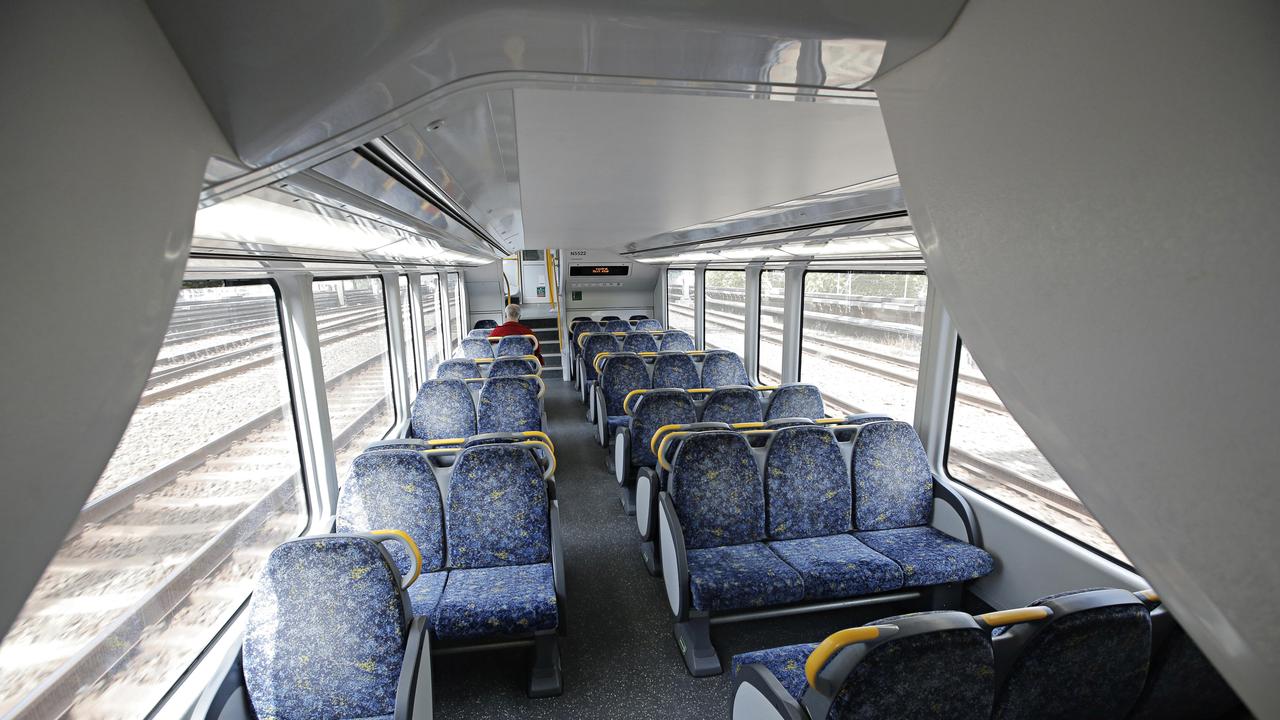
It’s not the only change expected to happen in the workplace in a post-pandemic world.
Businesses are being urged to stagger the times employees start and finish work ahead of a planned easing of COVID-19 restrictions over the coming months.
Authorities have begun planning for the resumption of normal trading with the Commonwealth and state governments readying for the associated influx of people on public transport.



